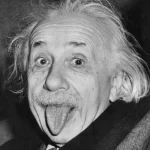“The spirit that designs the hydrogen bomb is not unrelated to the one that uses the electric washing machine as a convenience of civilization.”

- January 14, 1925 – November 25, 1970
- Born in Japan
- Novelist, playwright, critic, political activist
- He became a representative figure of postwar Japanese literature, and was highly acclaimed both at home and abroad. He pursued his own unique aesthetic with themes of beauty and death, and ultimately committed seppuku at a Self-Defense Forces garrison. His life, which combined literature with action, continues to have a strong influence today.
Japanese
「われわれが文明の利便として電気洗濯機を利用することと、水爆を設計した精神とは無縁ではない。」
English
“The spirit that designs the hydrogen bomb is not unrelated to the one that uses the electric washing machine as a convenience of civilization.”
Explanation
In this quote, Mishima draws a connection between two seemingly unrelated aspects of modern civilization: the utilitarianism of everyday life, represented by the electric washing machine, and the destructive power embodied by the hydrogen bomb. He suggests that the same spirit of invention and technological progress that drives the development of conveniences in daily life also fuels the creation of instruments of mass destruction. The quote implies that the mentality behind modern technological advances is not selective, and that the same human drive for control, efficiency, and mastery over nature can lead to both positive and catastrophic outcomes.
Mishima is making a critique of modern civilization and its complicated relationship with technology. While the electric washing machine is a symbol of comfort and convenience, the hydrogen bomb represents the potential for annihilation and danger. Mishima suggests that these two developments, although vastly different in their impact, stem from the same impulse: a desire to manipulate the world around us, whether for benefit or destruction. This could be a warning about the moral implications of technological progress and the risks that come with advancing human capabilities without considering the ethical consequences.
In a modern context, this quote highlights the paradox of technological advancement in contemporary society. While modern technologies provide comfort and efficiency, they can also be used for destructive purposes, such as in the development of weapons of mass destruction. Mishima’s words remind us that human progress is not inherently good, and that the same forces that drive the development of life-improving technologies can also contribute to devastating outcomes if not handled responsibly.
Would you like to share your impressions or related stories about this quote in the comments section?



